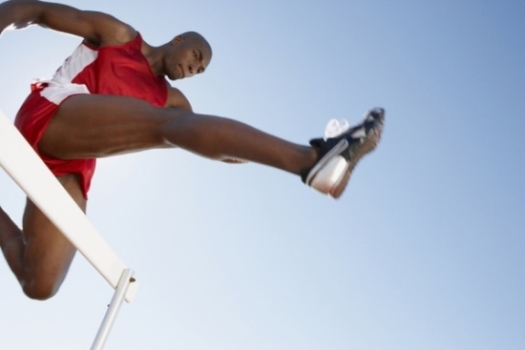
As a sports doctor and orthopedic surgeon who has studied the human body on an evolutionary level and cared for it on a mechanical one, I've long held the opinion that we were all born to be athletes. Whether you're the competitor or a spectator, there is a visceral response to engaging in or watching competition that is fascinating and entirely unique to humans. Just view Forbes' rankings of the 50 most valuable sports teams in the world – at an average net worth of approximately $2.2 billion each in 2016 – and you'll see just how popular athletics are to our human experience. Have you ever wondered why? Research in genetics provides us with some fascinating answers. I've studied and written quite a bit on this topic in my book "The Win Within – Capturing Your Victorious Spirit." Here you'll find some interesting highlights.
As one example of the DNA of athleticism, The Human Genome Project, which was completed in 2003 and mapped thousands of regions of DNA, identified the biological foundations for where our athletic abilities – like speed, strength and endurance – reside.
Endurance and speed, for example, are an evolutionary birth-right bestowed upon our early human ancestors so that they could exhaust and outrun their prey. Have you ever felt that runners' high after a long-distance run? Our brains helped us stick with the hunt all those years ago by releasing chemicals (called endorphins) that made us actually 'enjoy' the process! And those chemicals are still at work today – when we exercise, of course. Exercise kicks in our brain's reward centers, so not only are we hardwired with the anatomy to be active, we're also designed to enjoy it! In addition, evolution researchers theorize that these springy Achilles tendons in our ankles, our hairlessness and ability to sweat as well as the special canals in our ears that help us maintain balance and equilibrium, are also ancient design elements that have helped us be the absolute best hunter-gatherers on planet earth.
As a sports doctor and orthopedic surgeon who has studied the human body on an evolutionary level and cared for it on a mechanical one, I've long held the opinion that we were all born to be athletes. Whether you're the competitor or a spectator, there is a visceral response to engaging in or watching competition that is fascinating and entirely unique to humans. Just view Forbes' rankings of the 50 most valuable sports teams in the world – at an average net worth of approximately $2.2 billion each in 2016 – and you'll see just how popular athletics are to our human experience. Have you ever wondered why? Research in genetics provides us with some fascinating answers. I've studied and written quite a bit on this topic in my book "The Win Within – Capturing Your Victorious Spirit." Here you'll find some interesting highlights.
As one example of the DNA of athleticism, The Human Genome Project, which was completed in 2003 and mapped thousands of regions of DNA, identified the biological foundations for where our athletic abilities – like speed, strength and endurance – reside.
Endurance and speed, for example, are an evolutionary birth-right bestowed upon our early human ancestors so that they could exhaust and outrun their prey. Have you ever felt that runners' high after a long-distance run? Our brains helped us stick with the hunt all those years ago by releasing chemicals (called endorphins) that made us actually 'enjoy' the process! And those chemicals are still at work today – when we exercise, of course. Exercise kicks in our brain's reward centers, so not only are we hardwired with the anatomy to be active, we're also designed to enjoy it! In addition, evolution researchers theorize that these springy Achilles tendons in our ankles, our hairlessness and ability to sweat as well as the special canals in our ears that help us maintain balance and equilibrium, are also ancient design elements that have helped us be the absolute best hunter-gatherers on planet earth.
As we formed societies and cities, our physical development has become less of an imperative for survival. Our abilities to outrun predators today have taken on newer, more modern expressions as we have developed infrastructures, created technologies and formed social contracts. Despite this progress, our inherent drives – instilled within us for thousands of generations – have remained active. This is why athletic experiences and sports are the outlets for our shared biological drive.
Though it seems all the rage today, the concept of exercise for personal fitness is really only less than a century old. But our ancestry dating back 30,000-plus years tells us what we already know: We were born to move, and our brain is designed to incentivize it. The next time you're feeling unmotivated to exercise, please just give it a try. And really move like you mean it (only with clearance from a doctor if you haven't exercised in some time or have health conditions that need to be considered). Remember, the more you move, the more your brain rewards you for the effort. This is who you were designed to be.
